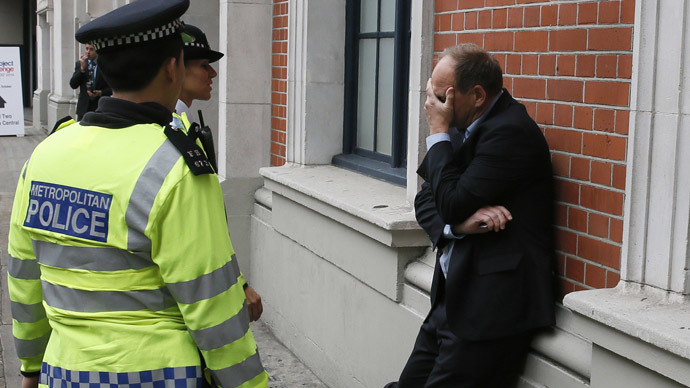Police mistakenly arrest people having epileptic seizures - health charity

People with epilepsy could end up with criminal records because police fail to recognize their condition, a charity has warned. They then inadvertently enter the criminal justice system because of behavior they cannot control.
Epilepsy Scotland said people could be arrested for shoplifting or getting into the wrong car when they were mid-seizure and unaware of their actions.
As part of an awareness campaign for police and law officers, the charity has developed a training DVD to show what seizure-related behavior looks like.
It shows how an epileptic person can have uncontrolled complex seizures that to outsiders can seem as if the affected person is drunk, and could resist arrest during the seizure, or to be acting illegally or indecently.
Lesslie Young, chief executive of Epilepsy Scotland, said: “We know some people can enter the criminal justice system inadvertently because of behavior which is a direct result of seizure activity over which they have no control.”
There are 42 different kinds of seizures and some start with only a few seconds’ warning. People can appear in a trance-like state and are unable to speak for several minutes. Everyday tasks can be problematic, Young said.
“They're in the shop, they're picking up the garment to have a look at, their seizure starts and they walk out the shop holding whatever piece of merchandise they may have. The other thing they might try to do is get into the wrong car or the wrong house. So they've been performing an activity, their seizure starts. They continuing to try and do that but inappropriately.”
READ MORE:Cure for migraines and epilepsy? Humans control genes in mice with power of thought
She added that cases, in which a person gets arrested while having an epileptic seizure, are often dropped when corroborative medical evidence is provided. However, it causes “a significant cost to the accused in high levels of stress and anxiety as well as the unnecessary use of judicial resources.”
Young emphasized that teaching police officers and the prosecution service how to detect and handle seizure-related behavior helps prevent possible miscarriages of justice.
Iain Livingstone, Deputy Chief Constable of Scotland, said: “Our focus is on keeping people safe and ensuring that we respond in the best way possible to the individual needs of members of the public who come into contact with the police, whether they are victims of crime, witnesses or an accused.”
He said that whenever officers come in contact with individuals, it’s vital to get it right the first time.
READ MORE:Mentally ill children held in prison cells as care facilities cut
In October, five police officers were served with gross misconduct notices regarding the death of a 32-year-old man who was allegedly restrained during an epileptic seizure.
A neighbor mistook the man’s shouting for an argument, while the man was having a seizure at home, and called the police. When officers arrived at the house, the man walked out in a confused state – behavior that is common among epileptics during a seizure.
The police, however, assumed the man was violent, even though his girlfriend told them he was suffering an epileptic seizure.
“They pushed him to the ground and three police officers sat on his chest to restrain him, at which point he had a heart attack,” his aunt told the Independent. “But they didn’t realize and put him in the van.”
The man lost consciousness and died two days later in the hospital.














